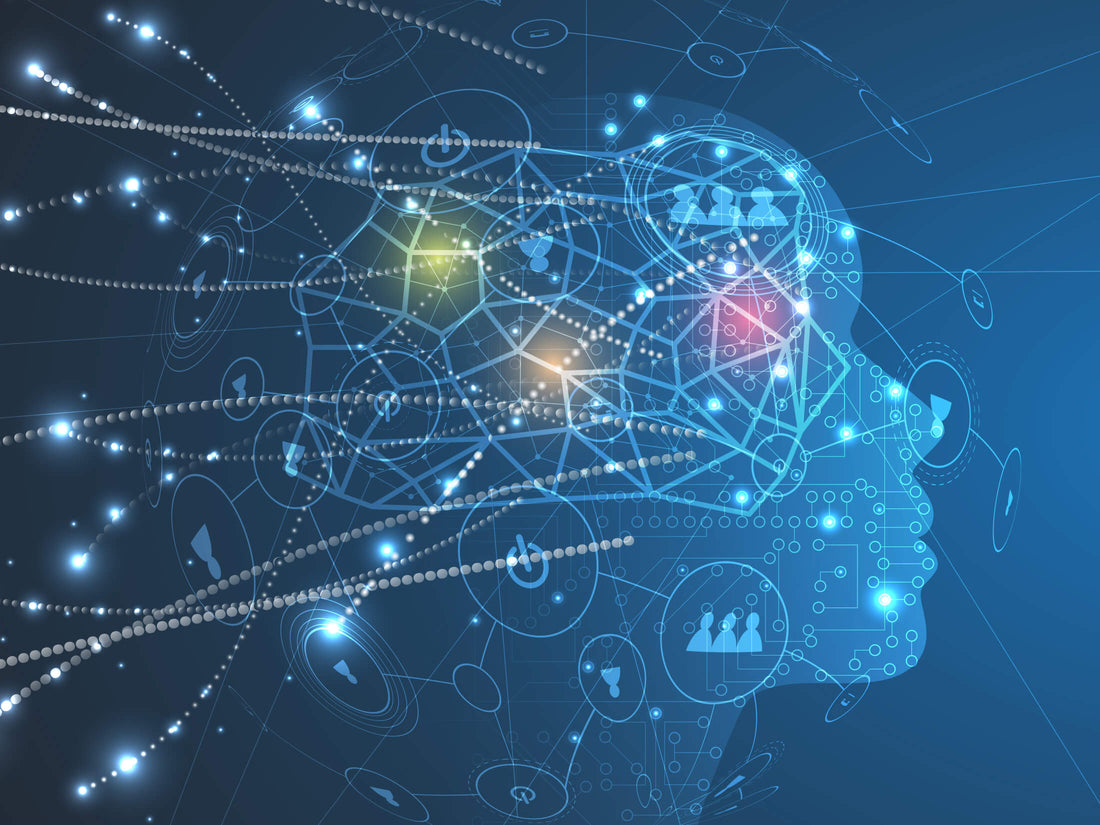A year into my role as the Medical Affairs Manager for Neuriva, I had the pleasure of helping to launch our premium Neuriva product, Neuriva Ultra. The ingredient that sets this product apart is Cognivive, which gives you the feeling of mental alertness in one serving. As a brand, we received feedback that individuals desired a product that provides experiential effects, and our new product truly hits the mark.
Cognivive is a proprietary extract of Alpinia Galangal, which is part of the ginger family and is a spice commonly used in Indonesian cooking. Cognivive is caffeine free and has been developed based on clinical tests that indicate support for mental alertness, a state of achieving and maintaining high sensitivity to incoming stimuli. A preclinical study investigating how the ingredient interacts with receptors in the brain demonstrated that the phytoconstituents of Alpinia Galangal Extract (AGE) may interact with dopamine and acetylcholine, key neurotransmitters which play a role in alertness and focus (1). There have been four clinical trials performed (resulting in 5 publications) on the AGE ingredient ( 2-6), which provided preliminary confidence in the efficacy of the ingredient. However, to support the nationwide launch of Neuriva Ultra, an additional clinical trial to validate the efficacy of the ingredient was executed and the findings have recently been published in Advances in Complementary & Alternative medicine (6).
The objective of this new trial was to investigate the acute effects of Cognivive on mental alertness, accuracy, and fatigue through a randomized, double-blind, placebo-controlled, cross-over clinical study in 62 healthy human subjects. Cognivive or placebo was administered 30 minutes following lunch and endpoints were measured at baseline, 0.5, 1, 2 & 5 hours post-treatment with a five-day washout period between treatments. The primary endpoints to support mental alertness were Symbol Digit Coding (SDC) test, Shifting Attention (SAT) test, Stroop Test (ST) and Alertness Rating Scale (ARS). Secondary outcomes were subjective measures of fatigue, energy, and vigor, using visual analogue scale, fatigue severity and daytime sleepiness questionnaires.
The SDC test assesses the ability to de-code symbols to digits and its execution demonstrates complex information processing accuracy. For this test there were significant increases in correct responses in the Cognivive group compared to placebo observed at the 0.5- and 2-hour (h) (p<0.05) timepoints. No effects were observed in reduction of errors.
The SAT test consists of shape & color matching with instructions changing at random. It measures the speed and accuracy to shift from one instruction set to another, and its execution demonstrates executive functioning through decision making. For this test an increase in correct responses and decrease in errors at 1 h (p<0.05) were observed in the Cognivive group compared to placebo.
The ST test measures reaction time through skills which inhibition/disinhibition is used to correctly identify color/word cues. Cognivive was found to decrease reaction time found at 2 & 5-h (p<0.05) compared to- placebo.
Additional findings included increases in the alertness rating scale at 2 & 5- h as well as significant decreases observed in daytime sleepiness at 1, 2, and 5-h.
Thus, this clinical trial demonstrates that Cognivive supports noticeable acute effects on mental alertness, which is the ability to quickly perceive a situation. Supporting this launch has been one of my proudest moments while working for Neuriva. Hopefully this post leaves you with the confidence to go purchase Neuriva Ultra and experience alertness in one serving!
Thanks for reading!
Lauren R Brink, PhD, RDN
Global Medical Affairs Manager
References:
1) Sivanandan, S., and Pimple, S., (2018) Molecular Docking Studies of Alpinia galanga Phytoconstituents for Psychostimulant Activity. Advances in Biological Chemistry, 8, 69-80. https://doi.org/10.4236/abc.2018.84006
2) Sirvastava, S., Pimple S., Effect of Cymbopogon Flexuosus, Alpinia Galanga, and Glycyrrhiza Glabra on Attention: A Randomized Double-Blind, Placebo-Controlled Pilot Study, BAOJ Nutrition 3:042, 2017
3) Sirvastava, S., Mennemeier, M., Pimple S., Effect of Alpinia galanga on Mental Alertness and Sustained Attention With or Without Caffeine: A Randomized Placebo-Controlled Study, J Amer Col Nutr, DOI: 10.1080/0731572432017.13425764) Srivastava, S., Selective enhancement of focused attention by Alpinia Galanga in subjects with moderate caffeine consumption, Open Access J Clin Tri, 2018.
5) Srivastava, S., Mennemeier, M., Chaudhary, J., A Randomized Placebo Controlled Clinical Trial Demonstrating Safety & Efficacy of EnXtra® in Healthy Adults, J Amer Col Nutr, DOI: 10.1080/07315724.2020.1753129Eraiah, M., Kundapur, M., Acute Effects of Alpinia galanga Extract on Mental Alertness, Accuracy and Fatigue in Human Subjects: A Randomized, Double-Blind, Placebo-Controlled, Cross-Over Study. Adv Complement Alt Med. 7(4). ACAM. 000669.2023. DOI: 10.31031/ACAM.2023.07.000669
6) Eraiah, M., Kundapur, M., Acute Effects of Alpinia galanga Extract on Mental Alertness, Accuracy and Fatigue in Human Subjects: A Randomized, Double-Blind, Placebo-Controlled, Cross-Over Study. 2023- in review Journal of Nutrition and Health
